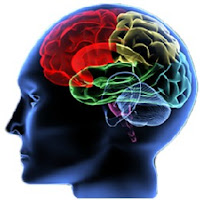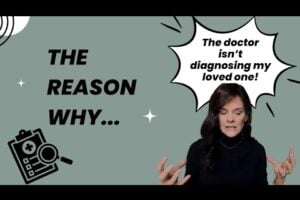Persons with Alzheimer’s disease are able to manage their everyday activities longer and they suffer from less psychological and behavioural symptoms if the diagnosis is made and treatment begun at a very early phase of the disease, according to a study conducted at the University of Eastern Finland.
Dementia Books & Videos on Amazon:
FREE Newsletter:
The study followed persons with Alzheimer’s disease over a course of three years. The study participants were diagnosed either at the very mild or mild phase of the disease and treated within the standard healthcare system.
According to the study, persons with a very mild Alzheimer’s disease at the time of the diagnosis and start of the Alzheimer’s disease targeted therapy have two advantages:
- They are better able to manage their everyday activities than persons diagnosed at a more advanced phase of the disease.
- In addition, in relation to the stage of the disease, they also had less psychological and behavioural symptoms during the follow-up.
According to the researchers, Psychologist Ilona Hallikainen and Adjunct Professor, Psychologist Tuomo Hänninen, the results show that an early detection of the disease is important.
Persons with Alzheimer’s disease may be able to live at home longer if they are able to manage their daily activities and have less psychological and behavioural symptoms.
In addition, the study enhanced knowledge about the use of common diagnostic tests during a follow-up. The results have been accepted for publication in the journal International Psychogeriatrics.
SOURCE:
University of Eastern Finland, via AlphaGalileo.
Note: Materials may be edited for content and length. For further information, please contact the source cited above.
REFERENCE:
Ilona Hallikainen, Tuomo Hänninen, Mikael Fraunberg, Kristiina Hongisto, Tarja Välimäki, Asta Hiltunen, Pertti Karppi, Juhani Sivenius, Hilkka Soininen, Anne M. Koivisto. Progression of Alzheimer’s disease during a three-year follow-up using the CERAD-NB total score: Kuopio ALSOVA study. International Psychogeriatrics, 2013; 25 (08): 1335 DOI: 10.1017/S1041610213000653












Contrary to newly released drugs costing $26,000 a year, there is no treatment and there is no cure. Early diagnosis feeds the medical and pharma industries.
True, this article points out the problem. For the hows and whys, check out the DIAGNOSIS section. You can click on the DIAGNOSIS link above (at the end of the article), or DIAGNOSIS in the column to the left where all the TOPICS are listed. Hope this helps.
This reads like an introduction to an article. Where's the rest of it? HOW does early detection help? Are there medicines? I know for a fact it is very difficult to convince someone to go get a diagnoses, just knowing isn't going to help.